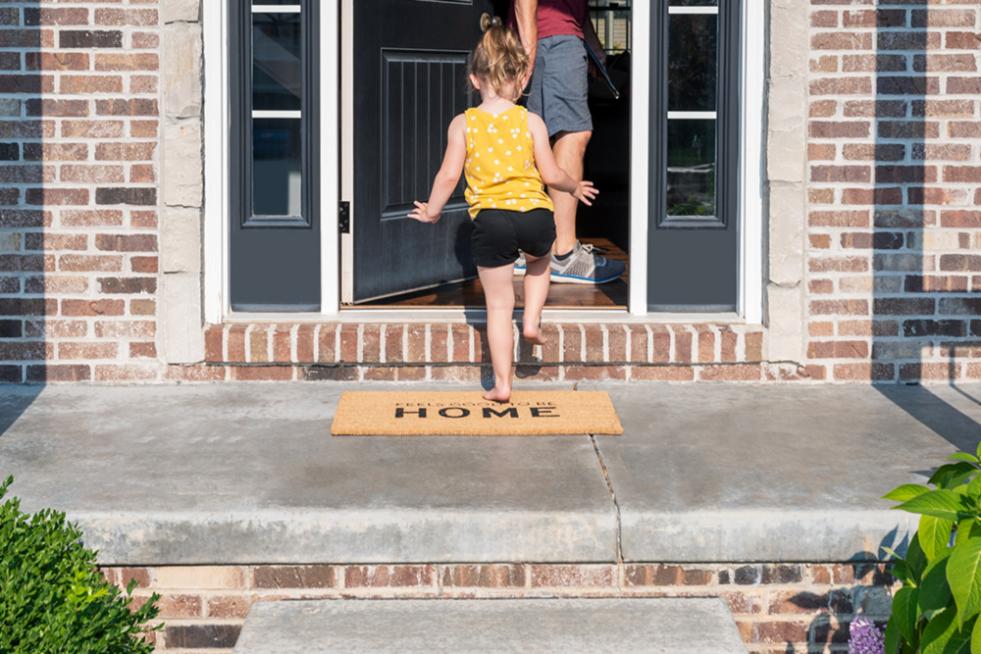Can I Secure a Mortgage as a First-Time Homebuyer at 36?
The prospect of purchasing a home can be both exhilarating and daunting, especially for first-time homebuyers. Navigating the complexities of the mortgage process can seem overwhelming, particularly if you're starting your journey at the age of 36. However, with careful planning, research, and the right guidance, securing a mortgage as a first-time homebuyer at 36 is entirely possible.

Assessing Your Financial Readiness
Before embarking on the mortgage journey, it's crucial to assess your financial readiness. This involves evaluating your debt-to-income ratio, credit score, and savings.
Debt-to-Income Ratio
- Calculate your debt-to-income ratio by dividing your monthly debt payments by your gross monthly income. Aim for a ratio below 36% to increase your chances of mortgage approval.
Credit Score
- Review your credit score and history. A higher credit score typically translates to lower interest rates and better loan terms.
Savings
- Save for a down payment, typically ranging from 3% to 20% of the purchase price. Additionally, factor in closing costs, which can add up to several thousand dollars.
Researching Mortgage Options
Once you've assessed your financial readiness, it's time to explore the various mortgage options available to first-time homebuyers.
Fixed-Rate Mortgages
- Fixed-rate mortgages offer a consistent interest rate throughout the life of the loan, providing stability and predictability in your monthly payments.
Adjustable-Rate Mortgages (ARMs)
- ARMs have an initial fixed-rate period, followed by a variable rate that can fluctuate based on market conditions. These loans may offer lower initial interest rates, but come with the risk of higher payments in the future.
Government-Backed Loans
- Government-backed loans, such as FHA and VA loans, are designed to make homeownership more accessible to first-time buyers. These loans often have more flexible credit and income requirements, and may require a lower down payment.
Finding A Lender And Getting Pre-Approved
Once you've chosen a mortgage type that suits your needs, it's time to find a lender and get pre-approved for a mortgage.
Compare Lenders
- Research local banks, credit unions, and online lenders to compare mortgage rates, fees, and customer service.
Get Pre-Approved
- Provide the lender with basic financial information to obtain a pre-approval letter. This letter will give you a clear idea of your borrowing power and strengthen your position as a potential buyer.
Completing The Mortgage Application

The next step is to complete the mortgage application, which involves gathering the necessary documents and providing accurate information.
Required Documents
- Personal information, including Social Security number, government-issued ID, and income verification.
- Financial information, such as bank statements, tax returns, and asset statements.
- Property information, including the purchase agreement, appraisal, and insurance details.
Accuracy And Completeness
- Provide accurate and complete information on the mortgage application. Any discrepancies or omissions can delay the approval process.
Mortgage Approval And Underwriting
Once you've submitted your mortgage application, the lender will review it and assess your creditworthiness.
Lender Review
- The lender will verify the information provided in the application and assess your creditworthiness.
- An appraisal will be ordered to determine the property's value and ensure it meets the lender's requirements.
- A title search will be conducted to ensure that the property has a clear title and no outstanding liens or encumbrances.
Mortgage Approval
- The lender will issue a conditional loan approval based on the appraisal and title search results.
- Final approval depends on satisfactory completion of any conditions specified by the lender.
Closing On The Mortgage
Once your mortgage is approved, it's time to close on the loan and finalize the purchase of your home.
Prepare For Closing
- Review the loan documents carefully to ensure they are accurate and complete.
- Arrange for homeowners insurance and flood insurance (if required) to protect your investment.
- Schedule a closing date with the lender and title company to finalize the mortgage transaction.
Closing Day
- Sign the final loan documents and pay closing costs, which typically include loan origination fees, title insurance, and escrow fees.
- Receive the keys to your new home and celebrate this significant milestone in your life.
Post-Mortgage Considerations
Even after closing on your mortgage, there are a few important considerations to keep in mind.
Make Timely Mortgage Payments
- Set up automatic payments to avoid late fees and maintain a good credit score.
- Consider making extra payments to reduce the principal and save on interest over the life of the loan.
Monitor Your Credit Score
- Continue to build and maintain a good credit score by paying bills on time and managing debt responsibly.
- Avoid taking on new debt that could affect your mortgage payments and overall financial stability.
While securing a mortgage as a first-time homebuyer at 36 may seem daunting, it is certainly achievable with careful planning, research, and the right guidance. By assessing your financial readiness, exploring mortgage options, finding a reputable lender, and diligently completing the mortgage application process, you can successfully embark on this exciting journey towards homeownership.
YesNo

Leave a Reply